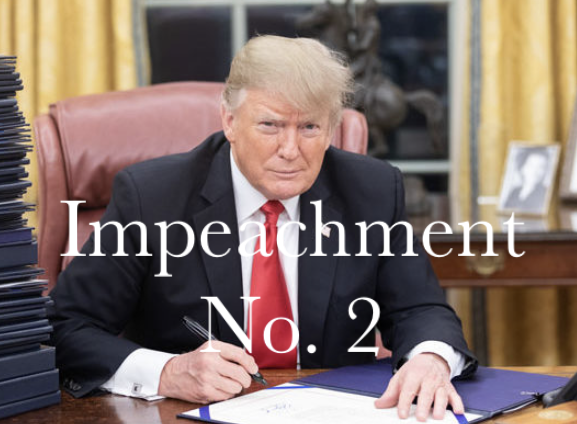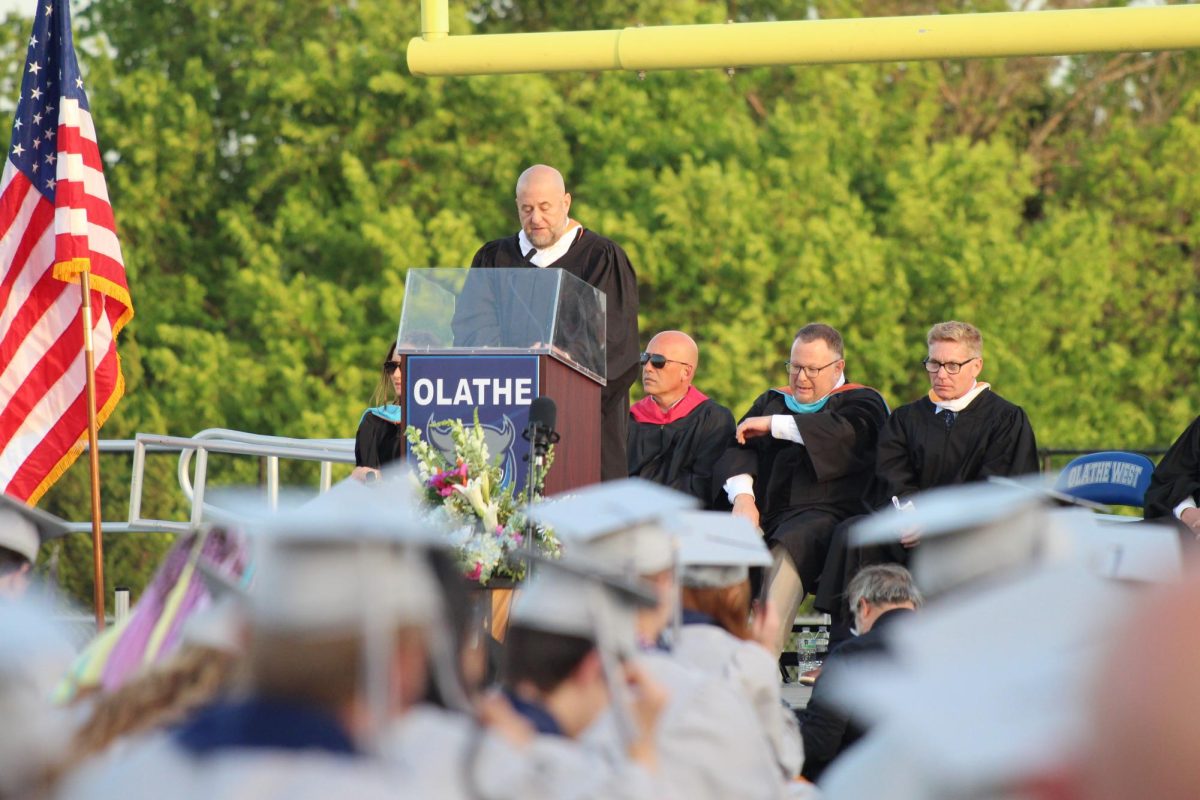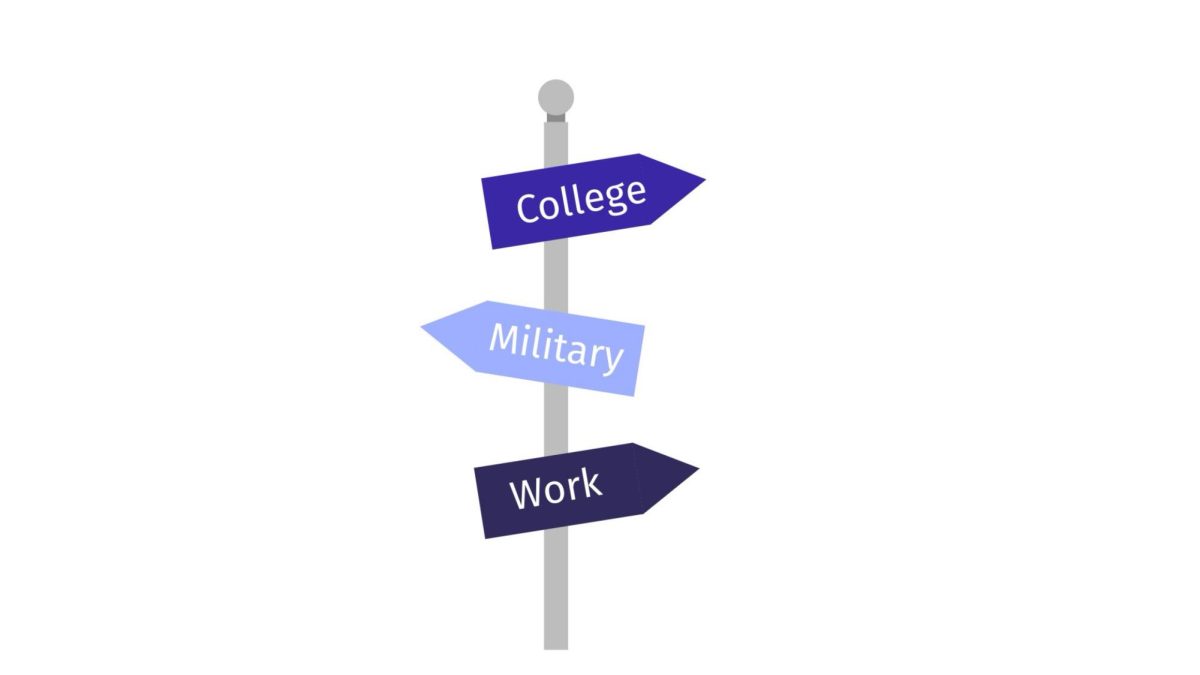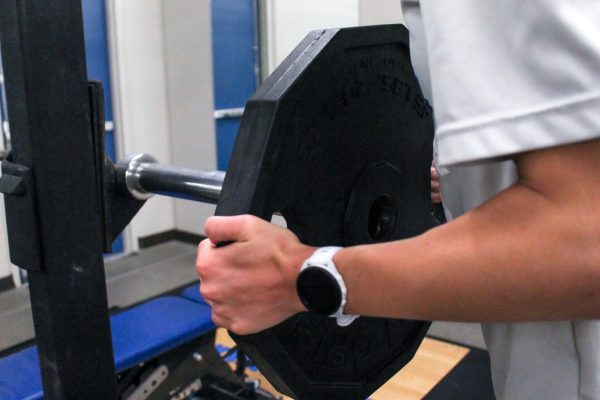Trump Acquitted of Impeachment for Historic Second Time

February 15, 2021
On Feb. 13, President Trump was acquitted of charges of incitement of insurrection following his impeachment by the House of Representatives. This trial came after a siege on the U.S. Capitol building on Jan. 6. The decision made by the Senate will decide if President Trump will be acquitted or charged.
President Trump was first impeached by the House of Representatives on Feb. 5, 2020, for abuse of power and obstruction of Congress. He was impeached on these charges after he allegedly made a phone call with the Ukraine president, Volodymyr Zelensky, where he asked him to dig up any dirt on his presidential rival, Joe Biden. These charges were then acquitted by the Senate the following month. President Trump was impeached again this year on Jan. 16, on charges of incitement of insurrection after the U.S. Capitol raid that same day.
The morning of Jan. 6, Congress was meeting to formally count the votes for the 2020 US presidential election, securing Joe Biden as the next President. President Trump then gave a speech later that morning in front of the U.S. Capitol building to his supporters. After that speech, many pro-Trump rioters broke into the Capitol building while Congress was in session, hoping to stop the count of the electoral votes. The siege ended later that day with five people dead. Congress reconvened later that night to confirm Joe Biden as 46th president of the United States.
The following week, on Jan. 13, the House of Representatives voted to impeach President Trump again on charges of incitement of insurrection after the U.S. Capital raid. Many people who voted to impeach him say that his speech just hours before the Capital riots was why his supporters decided to raid the Capital. In his speech, he talked about election fraud and claimed he “won the election by a landslide.”
If President Trump had been found guilty by at least two-thirds of the Senate, he would have lost all rights to presidential pension, secret service protection, allowance for staff and post-presidency office, reimbursed travel and a presidential funeral. The final vote was 57 guilty to 43 not guilty, short of the 67 guilty votes needed to convict.
President Trump’s defense claimed that the first amendment protected him from such charges and that what he said in his speech is not responsible for the action of others due to it being rhetorical political speech.
It’s not just the Senate that has been considering the outcome of this process, especially considering it is an impeachment trial for a president who is no longer holding office. Many students and teachers have been discussing this unprecedented impeachment, including Jordan Boyd, AP US History teacher.
“I think that it would be dangerous to say that once a president leaves office they’re immune from such charges because that potentially could open the door for somebody to use the last few days in office to do something extreme knowing that they couldn’t be held accountable for it,” Boyd said. “I understand the need for our nation to heal, I understand why Ford pardoned Nixon, but I think that accountability is an important part of who we are as Americans and our justice system should support that.”
Prior to the outcome of the trial, Boyd called for justice.
“I hope that Congress does right by the American people and by the president and I hope that it’s an example of justice and not a witch hunt and I hope it’s an example of justice and not letting somebody off,” Boyd said. “I just want justice, whatever that might look like.”







